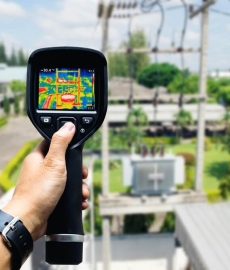Must-Have Add-ons for Luxury Car Insurance
Posted on December 04, 2020 | by Alex | Posted in Insurance
If there’s one thing you need to purchase for your high-end vehicle, then it’s absolutely luxury car insurance. Luxury cars are very costly to maintain and one of the main issues with owning one is the expensive repairs. Even minor damages can set you back thousands of dollars which is why securing luxury car insurance should be one of your top priorities.
One thing to keep in mind when buying luxury car insurance is selecting the appropriate add-ons. Add-ons provide extra coverage for an additional premium, thus securing your vehicle from a wide range of possible scenarios and incidents.
Having a comprehensive cover with all the important features is most often recommended by experts. But don’t be tempted to splurge on all the heavily-promoted add-ons or else you’ll end up paying more for what you don’t need. With that in mind, here are the must-have add-ons that you should get for your luxury car insurance.


Engine protection cover
The engine protection cover is bought as an additional coverage along with the comprehensive car insurance policy. This provides extended coverage towards damages or losses to your luxury car. The add-on compensates you for the replacement of the vehicle’s engine and/or its parts. This includes lubricant oil leakage, damage to the pistons or gearbox, water ingress, and hydrostatic lock.
With a standard comprehensive policy, these parts are usually not covered and hence you’ll have to fork out money from your pocket if you don’t have engine protection cover. Generally, the cost of this add-on is around 2% of the luxury car’s current market value. The model of the vehicle also affects the add-on price as well.
By having your car’s engine under the additional coverage, you’ll be able to save a lot of money by not having to bear the engine repair bills with your own money.
Depreciation reimbursement
Car depreciation is inevitable. Over time, the parts and components wear out as you drive your luxury car. Owing to this, the value of the parts go down as well. This depreciation is directly linked to the vehicle’s age. Typically, the insurer calculates the value of your vehicle’s parts after factoring in the depreciation and from there, you get the settlement amount.
Depreciation reimbursement helps protect your luxury car against all physical damages without factoring in depreciation. Although standard car insurance covers you against damages or losses when you file for a claim settlement, a depreciation deduction is calculated before you receive the compensation.
With depreciation reimbursement, the entire claim amount is paid by the insurance company. While you will have to pay more for your premium, you do benefit from the additional coverage since it eliminates the possibility of any out-of-pocket expenses.
Roadside assistance
Luxury cars are complex vehicles and typically, roadside garages don’t come with the necessary experience or expertise to handle repairs. Servicing a high-performance car requires a certain skill set which is typically available only with company-authorised service centres. The last thing you want is to suffer a mechanical failure and you can’t get your luxury car repaired.
With roadside assistance, you can rest assured that in the event your vehicle breaks down, you can phone the insurance company and help will be on the way. Roadside assistance includes the following benefits like emergency towing, fuel delivery, tire changes, and more.
Considering that a luxury car is of immense value, you don’t want to entrust it to a private towing service which doesn’t provide the same level of care and assistance that an insurance company offers.
Consumables cover
Consumables are items that need to be replaced regularly due to wear and tear. There are many items in a car that fit this description and these are the engine oil, brake oil, lubricants, screws, nuts, and bolts.
In a standard car insurance policy, these small consumable expenses are usually not covered. This means you will have to shell out your own money to if you need to replace any of these parts. With a consumables cover, however, your insurer will make a payout for the value of the items you’ve consumed.
As the cost of consumables is much higher in luxury cars, having a consumables cover will help keep the costs down in maintaining your high-end vehicle.
No-claims bonus protection
In car insurance, a no-claims bonus (NCB), or no-claims discount pertains to the number of years that you haven’t claimed on your car insurance policy. The amount of the bonus varies depending on the insurer, but an NCB of more than 3-5 years is likely to give you a huge discount on your premium.
If you make a claim on your policy where your insurer pays out, expect to lose some (if not all) of your no-claims bonus. To avoid this, you’ll need no-claims bonus protection. What this does allow you to have a certain number of “at fault” accidents without affecting the bonus you’ve accumulated. So if you were to get caught in an accident, the NCB remains intact even if your insurer can’t claim their costs back













